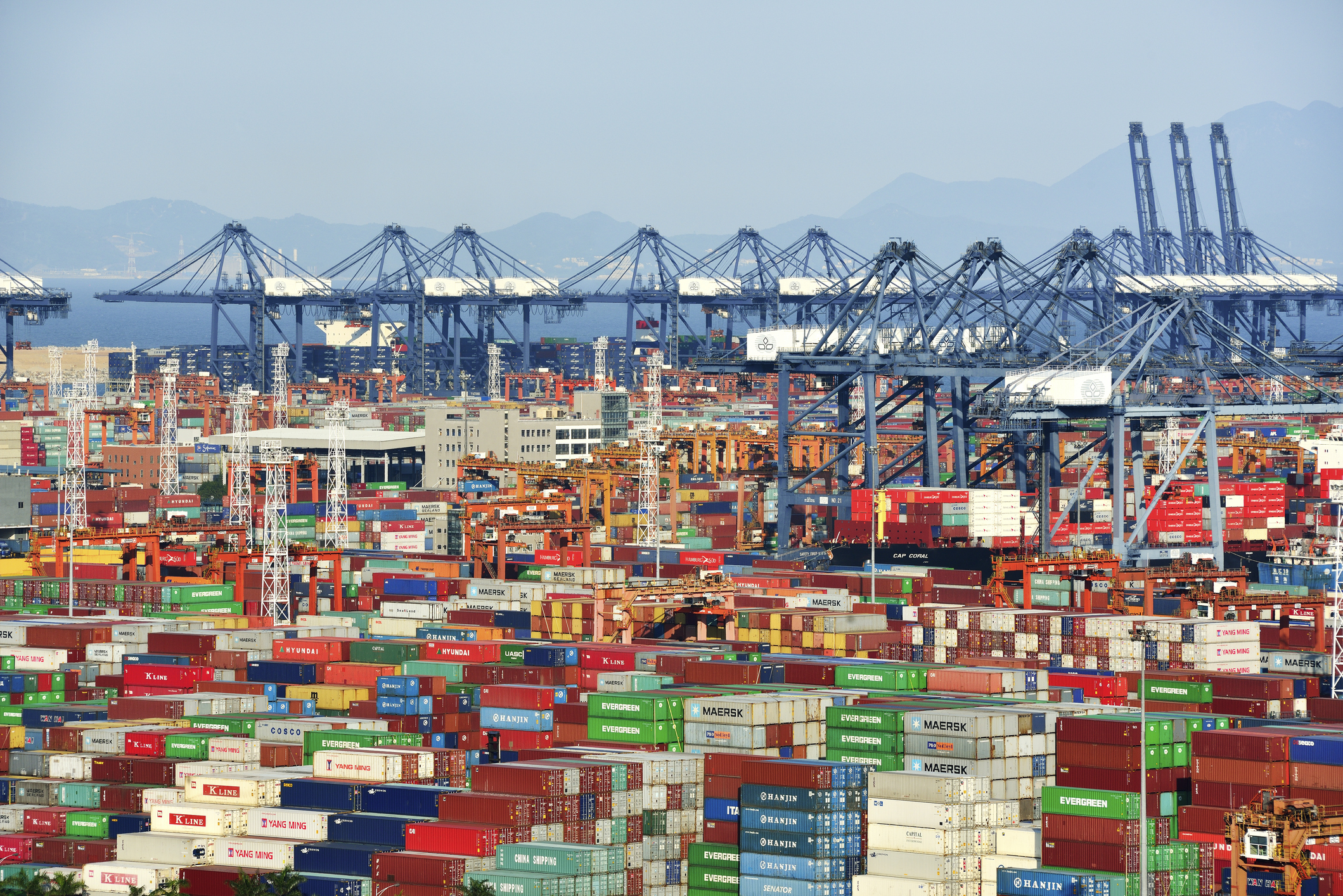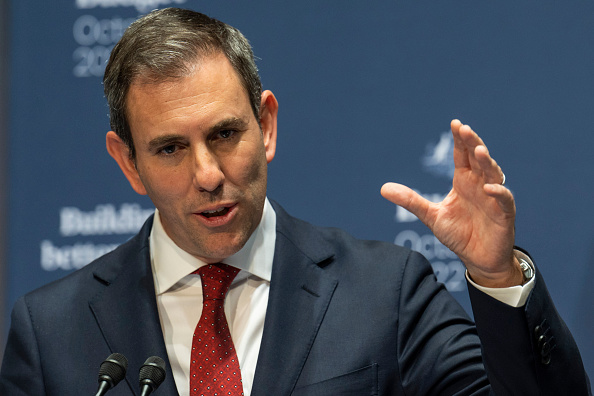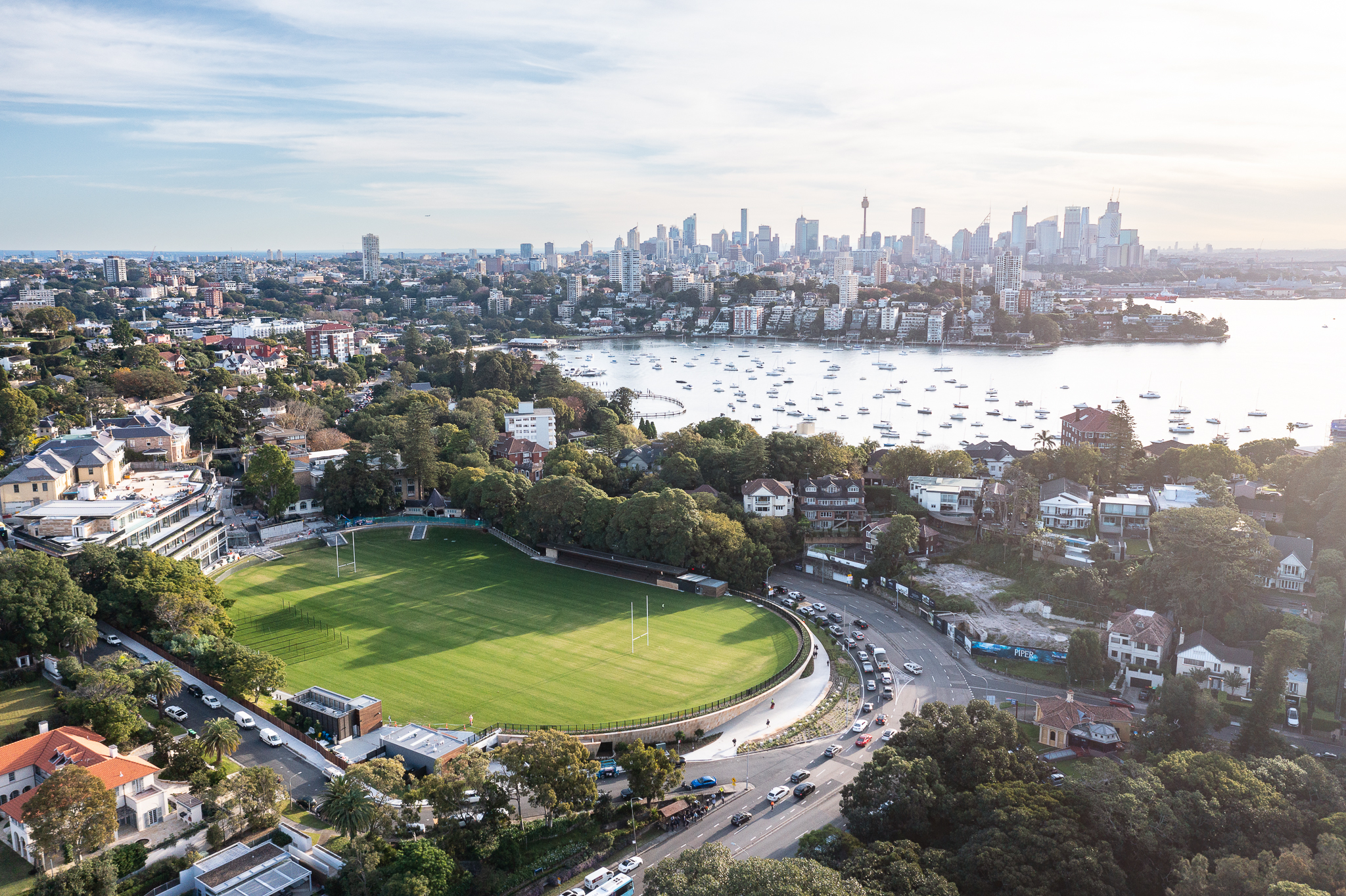China Increases Bond Issuance to Help Its Economy
Move to fund infrastructure projects comes alongside unusual increase of budget-deficit target
China ramped up efforts to stimulate its beleaguered economy, issuing additional sovereign bonds and raising its budget-deficit target, the first time it revised its budget outside the regular legislative session in more than a decade.
The country’s top legislative body approved on Tuesday a plan to raise 1 trillion yuan, equivalent to around $137 billion, in additional sovereign debt, half for use before the end of this year and half for next year, according to the official Xinhua News Agency. Policy makers said the bond issuance was intended for infrastructure projects in the wake of severe flooding and other natural disasters, Xinhua reported.
The latest stimulus, which follows a flurry of piecemeal measures such as interest-rate cuts and the lowering of mortgage costs for home buyers, signals that Beijing continues to worry about the weakness of the economic rebound it had counted on after doing away with all pandemic restrictions.
Part of the problem is a mounting debt burden for local governments in more areas of the country and a real-estate crisis that shows little sign of abating. Beijing has so far avoided offering support to households to help the economy transition into one more driven by consumption, in large part because of leader Xi Jinping’s focus on ideology and reluctance to resort to handouts to consumers.
While many economists puzzled over the timing of the announcement as growth in recent weeks has appeared to stabilize, they viewed the new debt issuance as incremental in nature and said it wouldn’t be enough to reverse longstanding headwinds for the economy such as a lack of demand from businesses and consumers.
The 1 trillion yuan of sovereign bonds make up less than 1% of China’s gross domestic product. By comparison, the stimulus China launched in the 2008 global financial crisis accounted for more than 12% of its GDP at the time.
“It’s certainly not a game changer,” said Larry Hu, chief China economist at Macquarie Group. “But it confirms that the overall policy stance stays supportive given the recovery is still fragile.”
Some economists say the stimulus bill sent an unusual signal that the central government is willing to shoulder responsibility in funding infrastructure projects, after leaving the task to local governments for much of the past few decades.
The Wall Street Journal reported in June that policy makers weighed issuing around 1 trillion yuan in special treasury bonds to help indebted local governments and prop up business confidence. The policy proposal didn’t get approved at the time by Xi, who has centralized decision-making. In the top leader’s view, austerity is preferred over stimulus, according to people close to Beijing’s policy-making process.
But the heavy flooding this summer displaced millions of people and further strained finances in northeast China, especially the province of Hebei that neighbors Beijing. Public anger flared up following the losses caused by the flood.
The decision to help the disaster-struck regions was made at a high-level meeting presided over by Xi in August, according to Tuesday’s Xinhua article.
Much of the new debt raised will be used to help with reconstruction after recent flooding, improve urban drainage and help fend off other natural disasters, according to the plan that was approved by the standing committee of the National People’s Congress this week, Xinhua said.
As a result, China’s official fiscal deficit, which doesn’t count special bonds issued by local governments, will rise to 3.8% of GDP, up from the 3% ceiling set by the government in March.
While the fresh stimulus should help China maintain 10% growth in infrastructure investments for the remainder of the year, according to Hu from Macquarie Group, it falls short of the type of stimulus that economists say China desperately needs: direct or indirect transfer of wealth to households to boost consumption.
Chinese officials last week reported a stronger-than-expected 4.9% on-year growth in the third quarter, a result that will likely ensure China will hit around 5% growth this year as desired, dimming the prospect for Beijing to unleash more relief measures urgently, economists said.
China last changed its budget outside the legislative session in 2008, when officials said they planned to spend 1 trillion yuan in funds raised through local government funding, bank loans, donations from residents and other channels to rebuild areas devastated by the Sichuan earthquake. Later that year, Beijing announced a stimulus package it billed as totaling $586 billion to bolster domestic demand and help avert a global recession.
“It is rare for the central government’s fiscal plans to be revised outside the usual budget cycle, so this move signals clear concern about near-term growth,” economists from Capital Economics said in a note to clients.
The funding gap for local officials has been exacerbated by the bursting property bubble, since local governments long have counted on land sales as a source of revenue, said Wei Yao, chief Asia economist at Société Générale.
“At minimum, Beijing recognized that local governments face structural fiscal constraints,” she said. “That’s a pretty big deal.”
 Copyright 2020, Dow Jones & Company, Inc. All Rights Reserved Worldwide. LEARN MORE
Copyright 2020, Dow Jones & Company, Inc. All Rights Reserved Worldwide. LEARN MORE
This stylish family home combines a classic palette and finishes with a flexible floorplan
Just 55 minutes from Sydney, make this your creative getaway located in the majestic Hawkesbury region.
The budget is being framed ahead of a federal election expected to be held in early 2025
SYDNEY—Australian Treasurer Jim Chalmers will deliver the government’s 2024-2025 federal budget next Tuesday amid concerns that strong revenue growth will tempt him toward a jump in spending, stoking the case for higher interest rates.
Economists expect Chalmers to announce a budget surplus for 2023-2024, supported in part by high commodity prices and strength in the job market, with unemployment continuing to hover near its lowest level in half a century.
The question on the lips of the governor of the Reserve Bank of Australia, Michele Bullock , will be how much of that revenue will flow back into the economy by things like added measures aimed at easing a cost-of-living surge for consumers.
Bullock told reporters Tuesday that the RBA’s board had considered a further rise in interest rates, sending a shot across the bow of the center-left Labor government ahead of the budget.
The budget is being framed ahead of a federal election expected to be held in early 2025.
The public acknowledgment of the RBA board’s discussion of what would be a 14th interest-rate rise in two years signaled that the central bank has grown more concerned about the inflation outlook after first-quarter data came in above its own expectations.
Economists have warned that the RBA isn’t even close to a decision to cut interest rates, and the more likely outcome at the moment is that the central bank will need to tighten the policy screws further before the end of this year.
“The challenge fiscal policymakers face is that although they are flush with revenue, a cautious approach ought to be taken to additional spending because the economy is still operating at full employment, and inflation is still too high,” said Paul Bloxham, chief economist at HSBC Australia.
“Loosening fiscal policy settings at this point could mean that monetary policy would need to be tightened further yet—or that rates need to be higher for longer,” he added.
The RBA is conscious of the fact that significant income tax cuts will be delivered midyear and that they target low- and middle-income earners, who are more likely to spend added income than save it.
The government has already signalled its plans to spend in the area of subsidies for local manufacturing, including for the production of solar panels.
In addition, the budget will focus on business tax incentives, increased defence spending, funding for domestic violence support, changes to student debt policy and infrastructure.
Chalmers has played down the risk over the budget stoking the flames of inflation.
“It will be a responsible budget, a restrained budget, and it will maintain our focus on that inflation fight,” he said Thursday in a radio interview.
“There will be help for people with the cost of living, but we’ll make sure that that cost-of-living help is part of the solution and not part of the problem when it comes to inflation,” he added.
A risk that the RBA will also be alert to is the probability that the government will hold back some of its revenue gains to support added spending closer to the election.
Josh Williamson , chief economist at Citi Australia, said Chalmers will likely push new spending into the future to avoid overheating the economy now.
“The government does not want to be seen promoting policies that add to the risk of further policy tightening,” he said.
This suggests that new spending will be pushed into the government’s forward budgetary projections, while measures that directly reduce inflation could be announced virtually immediately, Williamson added.
Just 55 minutes from Sydney, make this your creative getaway located in the majestic Hawkesbury region.
This stylish family home combines a classic palette and finishes with a flexible floorplan






















